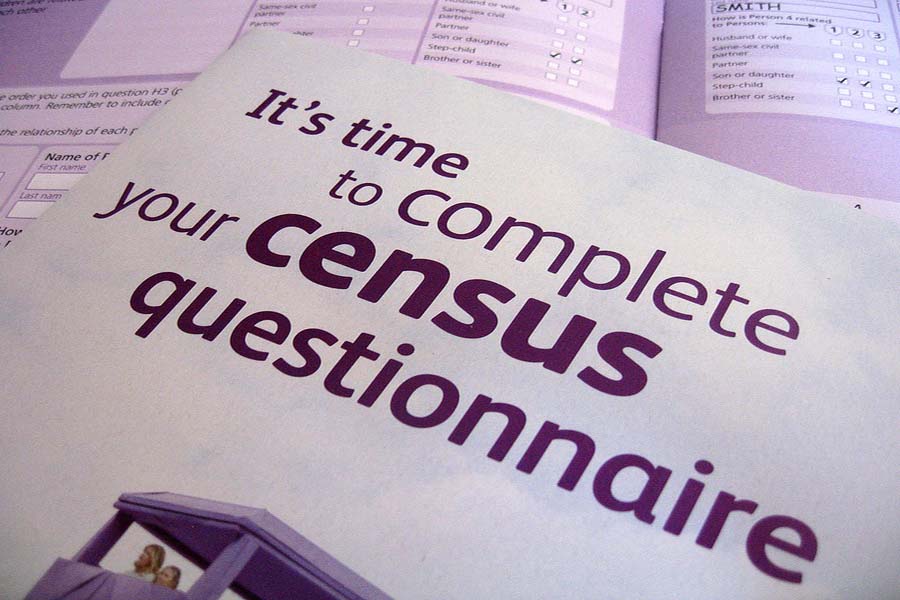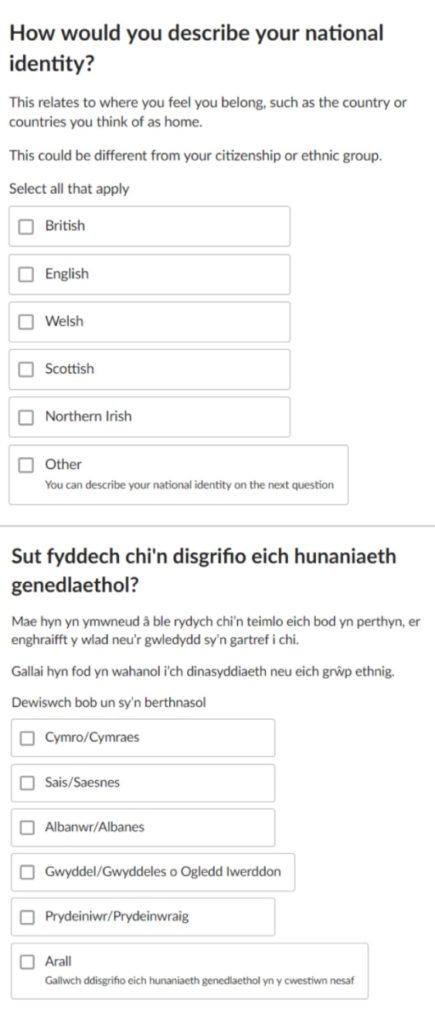
By Dr Laurence Cooley, School of Government, University of Birmingham.
With the decennial census of England and Wales scheduled for Sunday 21 March, a growing number of dissatisfied EU referendum ‘remain’ voters are taking to social media to declare their intention to answer the question on national identity by writing in ‘European’.
These posts have been appearing on Twitter for several months now, but the campaign has recently become more organised, with the advocacy group Stay European launching a slick webpage where people can pledge to declare themselves European and attracting some mainstream media attention.
#IAmEuropean and I am going to declare myself European in #Census2021. Find out more and make your pledge: https://t.co/swTlVxVkwb
— Stay European 🇪🇺 #FBPE #Rejoin (@StayEuropean) February 19, 2021
So far, almost 24,000 people have signed the pledge and the campaign appears to have generated significant traction on social media. However, there’s some way to go before comparisons can be made with the most famous census campaign of recent decades: that encouraging people to identify as Jedi in response to the question on religion added to the census in 2001. That year, 390,127 people in England and Wales – 0.7 per cent of the population – identified as Jedi.
Like the #IAmEuropean campaign, the Jedi religion campaign (which started in New Zealand and has since been replicated elsewhere) also want viral thanks to the internet – though before the advent of social media. A circular e-mail claimed that if enough people answered ‘Jedi’, then “it becomes a fully recognised and legal religion”, suggesting that the threshold for this was around 10,000 people. This claim wasn’t actually true, but it shows that for census campaigns to mobilise large numbers, they need to demonstrate a potential reward for identifying in a particular and unusual way.
My own research on census campaigns shows how they use both ‘instrumental’ and ‘symbolic’ messaging. An instrumental campaign rationale stresses how additional representation, rights or resources might result from maximising a group’s share in the population revealed by the resultant statistics. Symbolic messaging focuses more on the emotional aspects of group visibility through the census.
The Jedi campaign arguably combined these rationales: in promising official recognition, it suggested that a Jedi identity would be validated, but also perhaps that this recognition would lead to something more substantive. Indeed, an application for charitable status to be granted to the ‘religion’ was later made to the Charity Commission.
The problem for the #IAmEuropean campaign is likely to be that it isn’t able to promise concrete rewards. Yes, there is a clear symbolic dimension to the campaign in that it demonstrates strength of feeling, although whether this amounts to anything more than echo-chamber slacktivism by the #FBPE community on Twitter, whose views are already very well known, is doubtful. Stay European state on their website that: “If a sizeable proportion declared themselves European, we’ll be able to use the result to argue that there are a lot of people in the UK who still care about this and that the time to start talking about rejoining the EU has come”. As we’ve seen, however, even a popular census campaign such as the Jedi one influenced the responses of less than one per cent of the population – and it isn’t as if we don’t already have plenty of polls and surveys that document attitudes towards EU membership.

Some concern has also been expressed that the campaign might actually do harm, by skewing census results that are used for funding allocations and government planning. I think this concern is overblown, however. The national identity question was first asked in 2011, largely to allow people to express a sense of national belonging regardless of their ethnicity, but consultation by the Office for National Statistics has shown that the ‘user requirement’ for this question is low compared to others, such as age, sex or ethnicity, which are used to track inequalities.
The question also allows for multiple response, so writing in ‘European’ does not preclude people from also ticking another option such as English, Welsh or British. Important data on migrant populations comes from separate questions on country of birth and passports held. The one part of the UK where the campaign could have an unintended effect is Northern Ireland, which holds its own census on the same day and where national identity statistics are potentially more significant.
Overall, I’m sceptical that the #IAmEuropean census campaign will prove to be any more than a harmless stunt. If nothing else, though, people stating their national identity as European might intrigue family historians and make for a good footnote in future histories of Brexit when this year’s census returns are made public in 2121.
